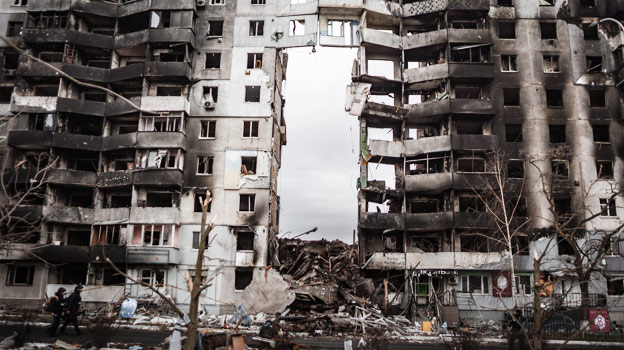
The world we currently live in sees a lot of different types of crimes that go unpunished. This certainly seems the case when we look back to how punishment for breaking laws was handed out in the 1980s and 1990s compared to now. While this may seem fairly accurate when we are looking at your average daily crimes, war crimes are a lot more complicated. This is partly because war crimes usually involve many more people and there is a lot more at stake. Or so it seems.
Surveillance
Aside from this, there are cameras all over the place. You can’t go to very many public places these days without being captured on a security camera somewhere. Plus, around 90 percent (my estimate) of the population is walking around with either a cell phone in their hands or tucked away in a pocket. Video registrators and other devices record and track our movements and store them digitally, and even physically (tape format, as an example). Although there are so many different ways to document activities these days, crime continues to be a problem with something punishable taking place daily.
Data recovery is going to play a huge role in the delivery of justice to those who have been involved in war crimes regardless of where on Earth these incidents occur or the conflict they are associated with. The Hauge (International Court of Justice) should be the first contact you would make if you believe you have evidence on tape or in digital storage that can be used in either an investigation that is currently underway, or for a case yet to be opened. Just check their website to see what investigations are open at this time.
Stay Protected
Your top priority should be to use a VPN to remain anonymous and untraceable. There are several VPN providers out there with some that also work with mobile devices. A good place to start your search for the right VPN for you is Surf Shark. A simple Google search will give you others to check.

Do you have a device that you think may contain evidence, but shows signs of extreme damage? I’m talking about a hard drive storage device that has been damaged by a fire, flood, explosion, or some other mishap. There are ways to recover data from these types of devices.
To give you an idea of what I mean, when 9/11 occurred in 2001, data recovery experts from Germany were able to uncover a lot of digital secrets. They did this by recovering data from drives that were uncovered in the rubble of the Twin Towers. As hard as it may be to believe, if that type of damage can still yield valuable data through recovery processes, a computer that survives a house fire or is fished out of a lake should be fairly easy to recover data from in comparison.
There is a disclaimer here.
It is a good idea to never submit your data recovery requests to a company that is based in a country that is facing charges related to war crimes. Anonymous submissions are usually welcome, but to be sure, contact the company you are hoping to help recover your data first.
Recovering data as evidence, and bringing those individuals who participated in war crimes to justice is important to us as citizens. It is through us that we can contribute to world peace. If you know something and have digital proof, speak up. If all of us were to do this, it would not be just a single voice in the crowd. It would be 8 billion people speaking up in unison.
That would be hard to ignore.
